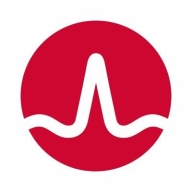

Nolio Release Automation and GitLab are competing products within the software release management and DevOps category. GitLab appears to have an advantage due to its comprehensive feature set.
Features: Nolio Release Automation is powerful in orchestrating complex release processes and optimizing application deployments. Its customizable pipeline tools are ideal for enterprise environments, facilitating complex deployments with substantial automation capabilities. GitLab offers a more integrated platform, encompassing seamless version control and extensive CI/CD pipelines. GitLab's ability to manage the entire development lifecycle and its integration capabilities make it a strong contender in terms of overall functionality.
Room for Improvement: Nolio Release Automation could enhance its integration capabilities with external tools and simplify its user interface for broader appeal. The learning curve for new users could also be reduced. GitLab could improve its pricing model to appeal to smaller enterprises and enhance its customer support for non-enterprise clients. The platform might also benefit from expanded native integration features.
Ease of Deployment and Customer Service: Nolio Release Automation excels in deployment coordination, especially useful in large-scale IT environments due to its detailed coordination and rollback capabilities. Its customer service is tailored to meet critical enterprise needs. GitLab offers a more user-friendly deployment experience, aided by extensive community resources and documentation. This accessibility and ease of deployment, combined with a supportive ecosystem, give GitLab a distinct advantage in this arena.
Pricing and ROI: Nolio Release Automation provides competitive pricing and a significant ROI by optimizing resources and processes for enterprise operations. GitLab, perceived as higher-priced, offers considerable ROI through its extensive feature set, which gives added value by streamlining development and operational processes. Despite Nolio's cost effectiveness, GitLab's broad benefits deliver a compelling investment.
Regarding release frequency, previously we had one to two releases per week, but now we achieve daily or on-demand releases, resulting in a three to five-fold increase in release frequency.
Migrating to GitLab is bringing time-saving benefits, and everything is easier to automate.
We have saved time significantly, reducing deployment time from four hours to five minutes per deployment.
We have rarely needed to escalate issues to technical support since GitLab usually runs seamlessly.
I have interacted with architects for some advice during the implementation, and they were prompt in their response.
I have had meetings where they taught me, explained things, and provided guidance for starting from scratch.
It has all the features required for our coding and deployment needs, which makes it scalable to our changing requirements.
We're transitioning to OpenShift for future scalability with increased user numbers.
For scaling, other deployment options from GitLab's side need to be adopted.
I have not encountered any performance or stability issues with GitLab so far.
The updates are frequent and demanding, happening at least once a week due to security reasons.
We raised a request with GitLab support, but they were unable to help because they could not find the root cause of what went wrong.
This might be because it is a six-year-old version, and we are supporting nearly 1,500 applications and 15,000 to 16,000 agents.
It would be beneficial to have a user-friendly interface for setting up these configurations, instead of just writing YAML files.
It is essential to conduct proper testing, such as unit tests and code coverage, within the SDLC pipelines.
GitLab can improve its user interface to make conflict resolution more user-friendly.
It is one of the greatest tools for continuous deployment, yet its popularity remains limited.
Even when working in other small organizations, we opted for GitLab as it was cost-efficient.
The pricing of GitLab is reasonable, aligning with what I consider to be average compared to competitors.
The price is high, and it limits user accessibility.
As we implement automated testing and DevSecOps, it speeds up the process by forty to sixty percent.
The Ultimate version offers enhanced features for security scanning through DAST and SAST analysis, which have greatly benefitted our project workflow.
By integrating GitLab as a DevOps platform, we have enhanced agility, improved our time to market, and different teams can work collaboratively on various projects.
| Product | Market Share (%) |
|---|---|
| GitLab | 29.8% |
| Nolio Release Automation | 1.9% |
| Other | 68.3% |


| Company Size | Count |
|---|---|
| Small Business | 36 |
| Midsize Enterprise | 10 |
| Large Enterprise | 46 |
| Company Size | Count |
|---|---|
| Small Business | 5 |
| Midsize Enterprise | 5 |
| Large Enterprise | 39 |
GitLab offers a secure and user-friendly platform for CI/CD pipeline management, code repository control, and collaboration, enhancing development speed and efficiency. It facilitates automation with extensive customization and tool integration, ideal for DevOps processes.
GitLab supports source code management, version control, and collaborative development. It's frequently used in CI/CD processes to automate builds and deployments while integrating DevOps practices. GitLab allows companies to manage repositories, automate pipelines, conduct code reviews, and maintain development lifecycles. The platform supports infrastructure and configuration management, enabling efficient code collaboration, deployment automation, and comprehensive repository handling. Many organizations commit and deploy developed code using GitLab's capabilities.
What are GitLab's most valuable features?In specific industries, GitLab serves as a backbone for source code management and CI/CD implementation. Companies leverage its capabilities for infrastructure management and deployment automation, thus streamlining project delivery timelines. Its ability to handle configuration management and code repositories effectively aids in maintaining development lifecycles, making it a preferred choice for organizations committed to enhancing their DevOps practices.
CA Release Automation enables you to seamlessly connect the continuous delivery ecosystem to deliver high-quality applications faster than ever before. With this enterprise-ready solution, you can accelerate and stabilize application deployments from development to test to production. Its advanced capabilities can help you plan, manage and optimize the continuous delivery pipeline to improve release quality and efficiency. With CA Release Automation, get automated, agile release management that’s ready to work in your IT world.
We monitor all Release Automation reviews to prevent fraudulent reviews and keep review quality high. We do not post reviews by company employees or direct competitors. We validate each review for authenticity via cross-reference with LinkedIn, and personal follow-up with the reviewer when necessary.